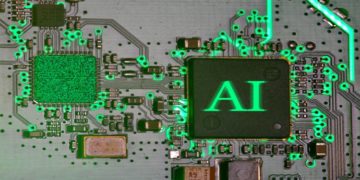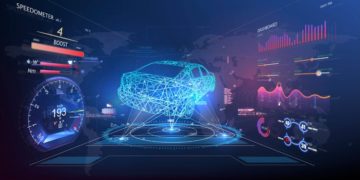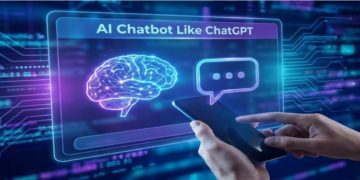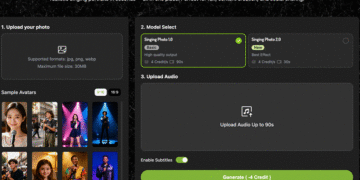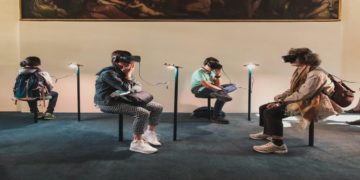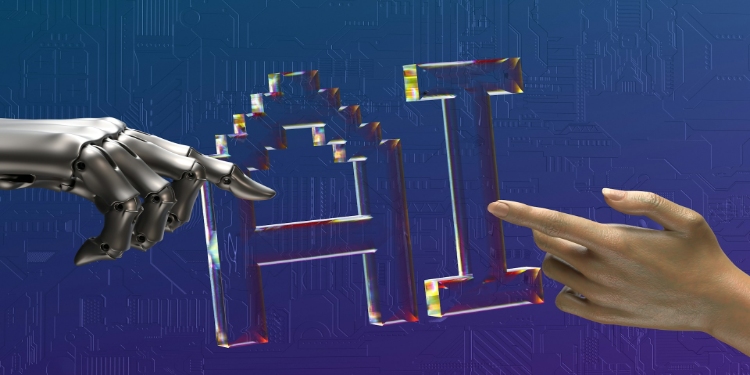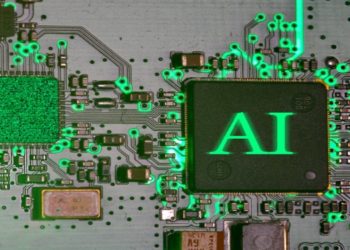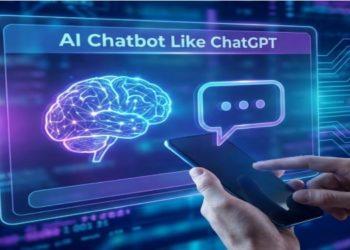Artificial intelligence has become one of the most discussed developments of the modern era, but beyond the headlines and hype, it is quietly transforming how people across the UK work. Whether it’s small business owners streamlining admin tasks, running through to employees relying on digital assistants and smart scheduling tools, AI has become part of everyday working life. It is not replacing people, but reshaping what their jobs look like – and, for many, that change is proving to be positive.
The New Face of Hybrid Work
With hybrid working becoming the norm for many, AI has played a crucial role in keeping workplaces connected and efficient. Intelligent meeting tools now transcribe discussions, highlight action points, and generate summaries for those who cannot attend. Office platforms have evolved from simple communication tools into functioning digital ecosystems that can manage projects, anticipate deadlines, and perform a range of other tasks.
These developments have helped solve one of hybrid work’s biggest challenges: maintaining collaboration and consistency between home and office. AI has quietly taken over the routine parts of admin and communication that once slowed down teams, allowing people to focus on the aspects of their roles that require creativity, judgment, and human connection.
Collaboration software has also moved far beyond simple video calls. The latest systems can generate follow-up messages, suggest relevant files, or summarise complex discussions in moments. The result is a smoother blend of work and life, with technology taking care of much of the background noise that comes with a flexible schedule.
Automation for the Everyday Employee
Automation was once a term linked to heavy industry, but in 2025, it is happening on office desktops and laptops as much as factory floors. In areas such as finance, recruitment, and marketing, AI is handling the kind of repetitive work that used to take hours. From automatically sorting invoices to identifying the best job applicants, it is becoming a quiet partner to workers rather than a replacement.
In many workplaces, this has shifted the focus from volume to value. Instead of spending time on manual tasks, employees can focus on strategy, innovation, and client relationships. The technology is not removing roles but redefining them – freeing people from the most repetitive aspects of their work while still relying on their judgement and decision-making.
Productivity Without Burnout
The most successful uses of AI are not about doing more, but doing better. The smartest tools help remove the everyday frustrations that cause stress and burnout, creating space for people to think and work more effectively. In customer service, for instance, AI chat systems now handle routine questions, leaving human teams free to manage complex or sensitive issues that require understanding and empathy.
Marketing and creative departments are leveraging AI to generate first drafts, gather insights, and test new ideas more quickly than ever before. Across offices and sectors, technology is helping people focus on the part of their jobs that machines cannot do – thinking, solving problems, and engaging with others.
A New Kind of Skillset
As AI becomes more integrated, the skills expected of workers are naturally changing. Digital literacy is now a fundamental requirement, not a bonus. People are learning to work alongside technology – knowing what to trust, what to check, and how to use it effectively.
Employers are also adapting, with more training focused on understanding AI tools and interpreting their results. The demand for technical ability is rising, but so too is the value placed on adaptability and human judgment. The modern worker is expected to combine digital fluency with creativity, collaboration, and critical thinking – skills that cannot be automated.
Education is following suit. Universities, colleges, and professional bodies are introducing new courses designed to help people understand how AI fits into their industries, from business management to design and healthcare. The goal is not to create a workforce of programmers, but one that knows how to use intelligent systems responsibly and effectively.
Not All Bad – and Often Better
Despite concerns circulating automation and surveillance, the reality in many workplaces is more optimistic. AI has become less of a spectacle and more of a support system. It runs quietly in the background, helping to make everyday processes faster and smoother. It now sits behind meeting schedules, recruitment systems, logistics planning, and customer service platforms.
For British workers, this subtle integration means AI’s greatest achievement may just be its invisibility. It helps people complete tasks more efficiently without drawing attention to itself. Meetings run more smoothly, admin takes less time, and workflows are easier to manage. In industries like retail and healthcare, these small improvements add up to a significant boost in productivity and morale.
The future of work will depend on how technology is balanced with trust. AI can analyse, predict, and automate, but it cannot replace human connection or creativity. When used well, it becomes a quiet collaborator – helping people make better decisions and freeing them from the most repetitive parts of their day.
Far from the dystopian image often painted, artificial intelligence is proving to be a valuable partner to the British workforce – and outside of the typical nine to five jobs, it can even help to pursue online side hustle ventures. It is not taking over; it is taking away the tasks that hold people back. As technology continues to evolve, the workplaces that thrive will be the ones that enable AI to handle the routine while humans focus on what truly matters.
David Prior
David Prior is the editor of Today News, responsible for the overall editorial strategy. He is an NCTJ-qualified journalist with over 20 years’ experience, and is also editor of the award-winning hyperlocal news title Altrincham Today. His LinkedIn profile is here.

